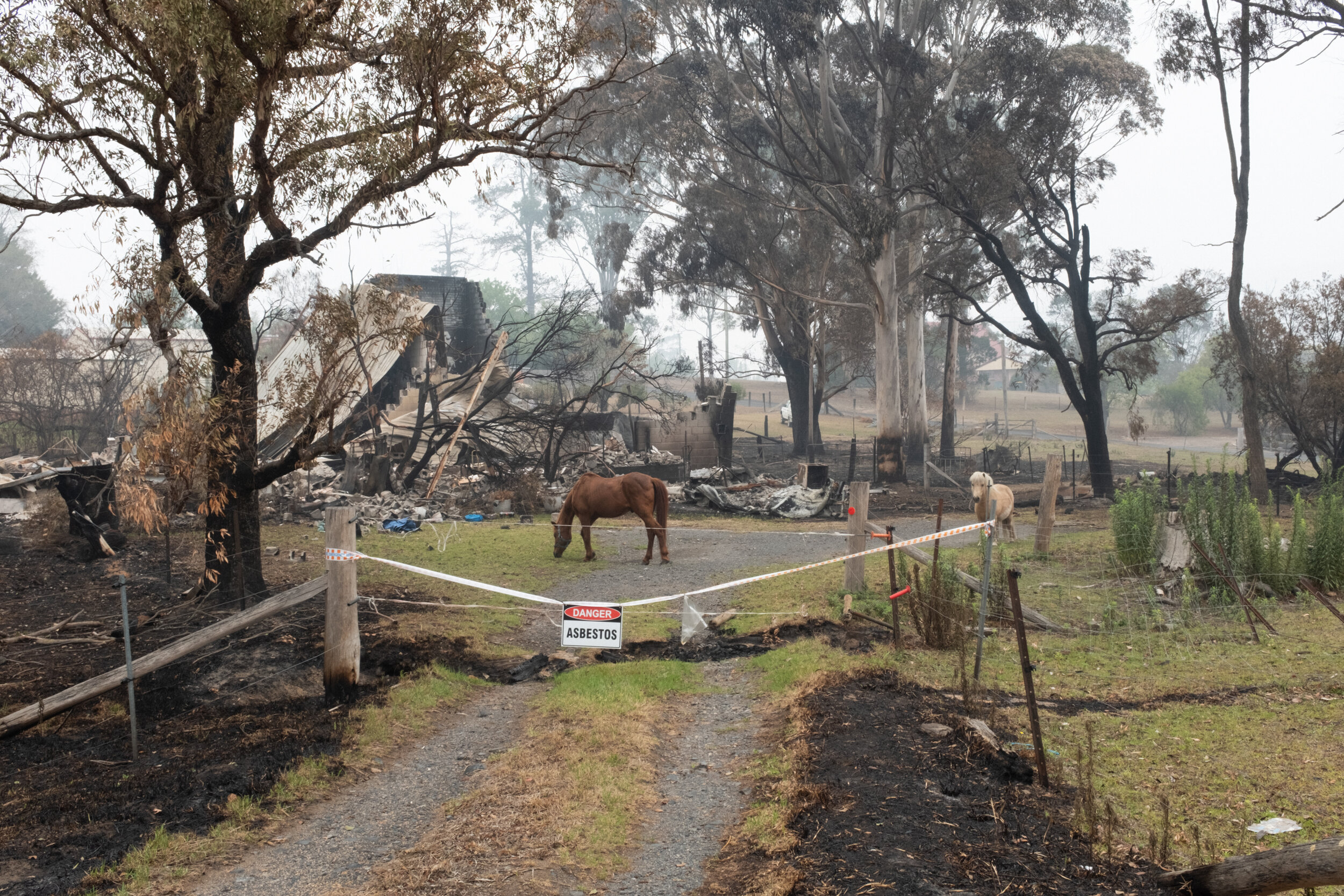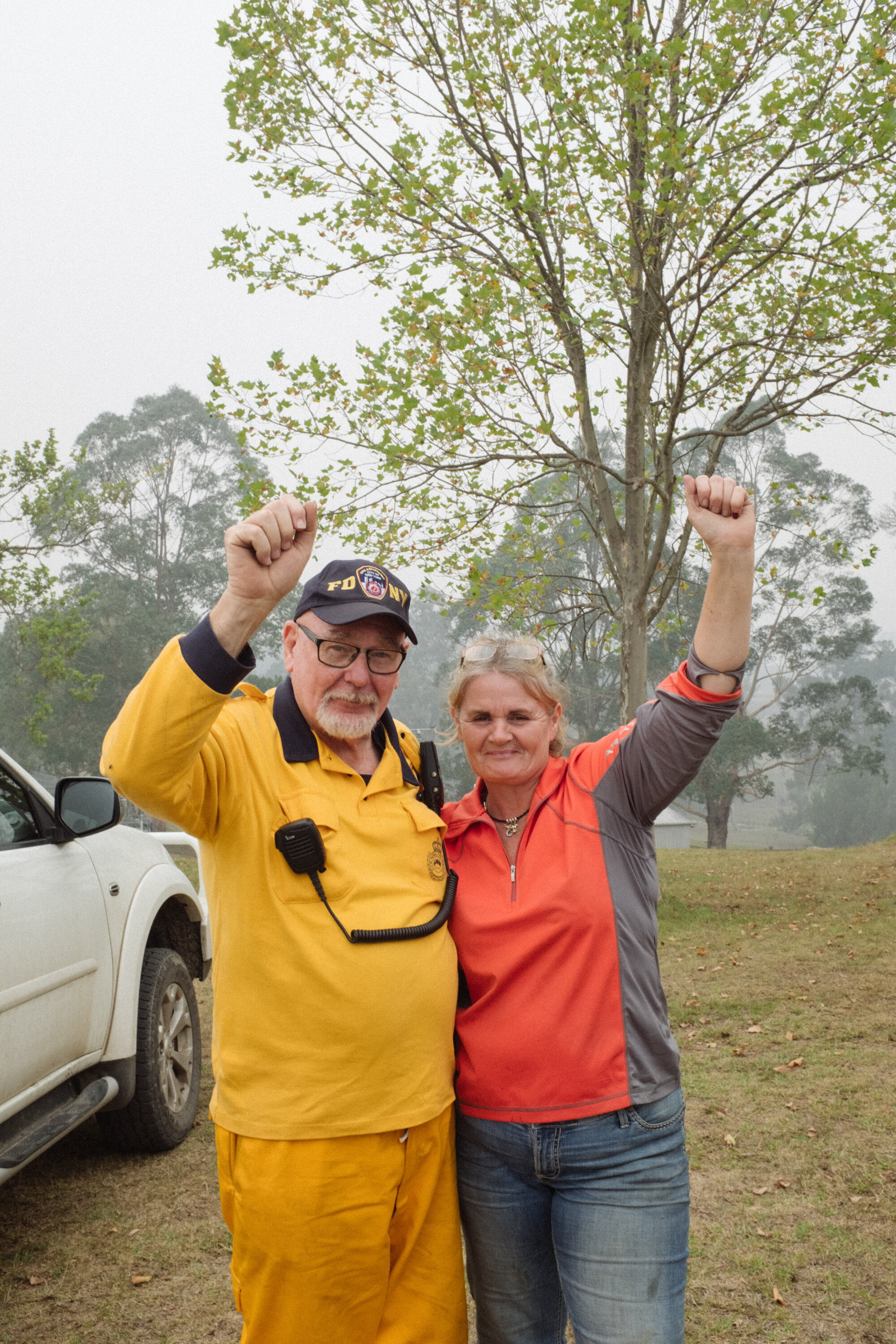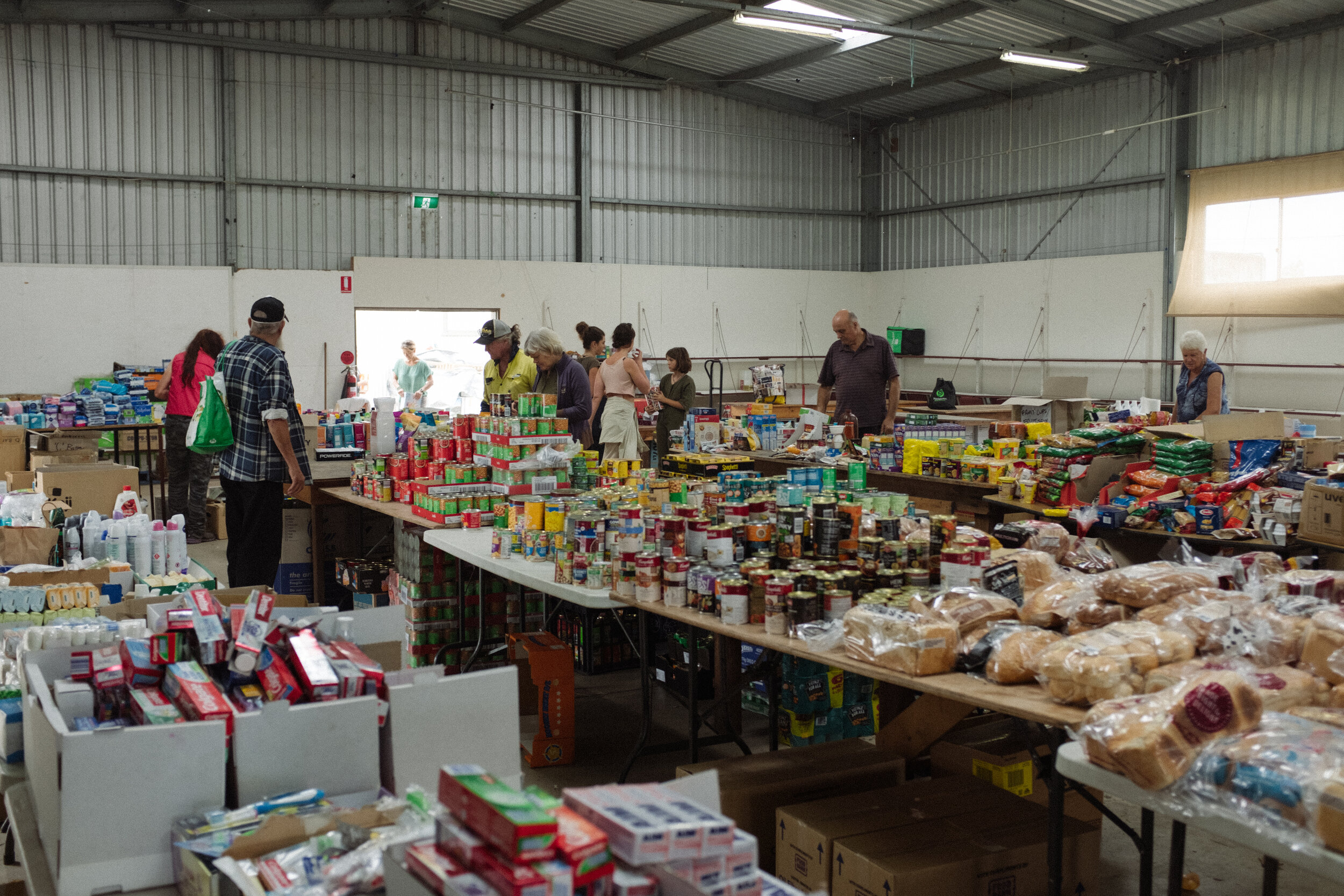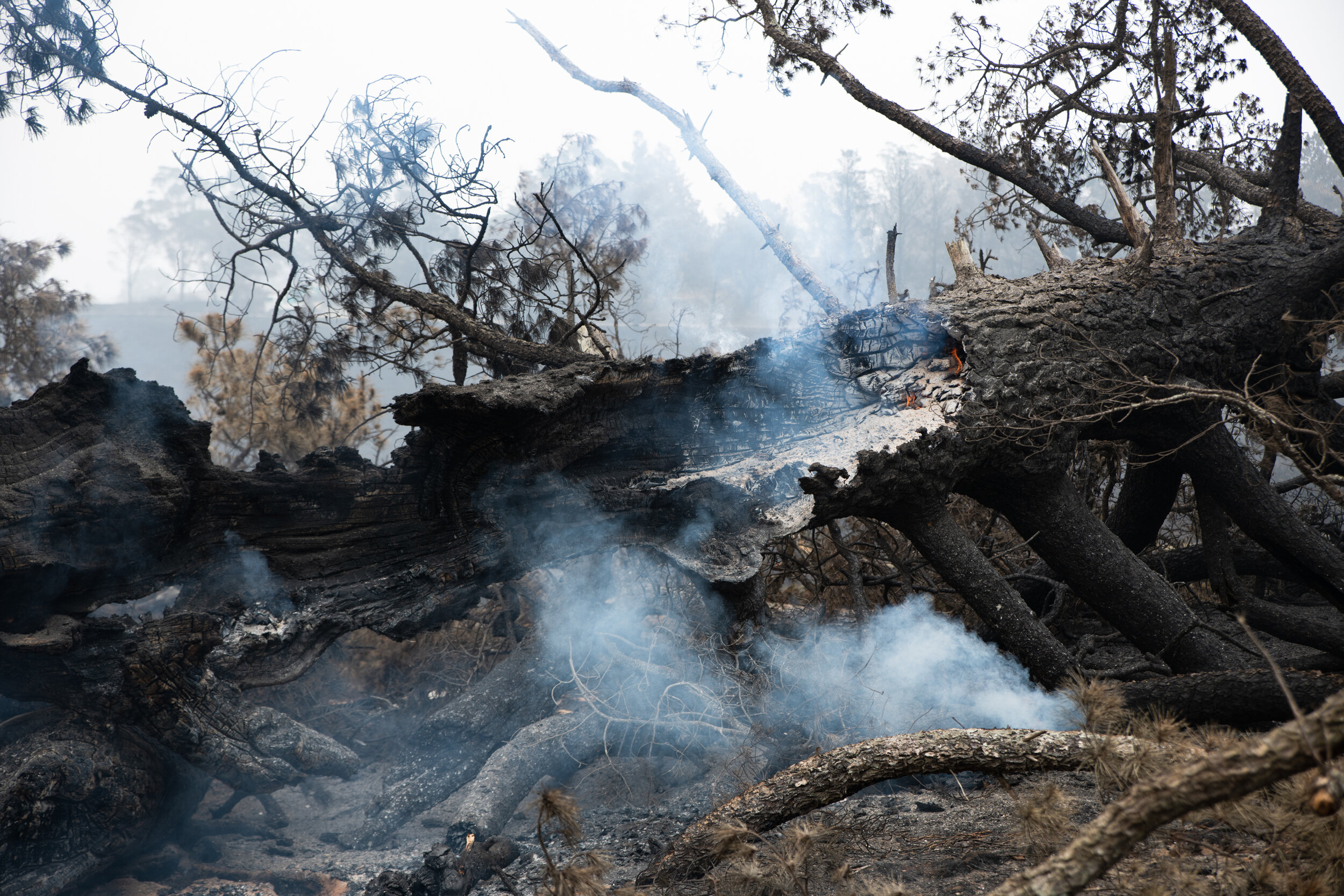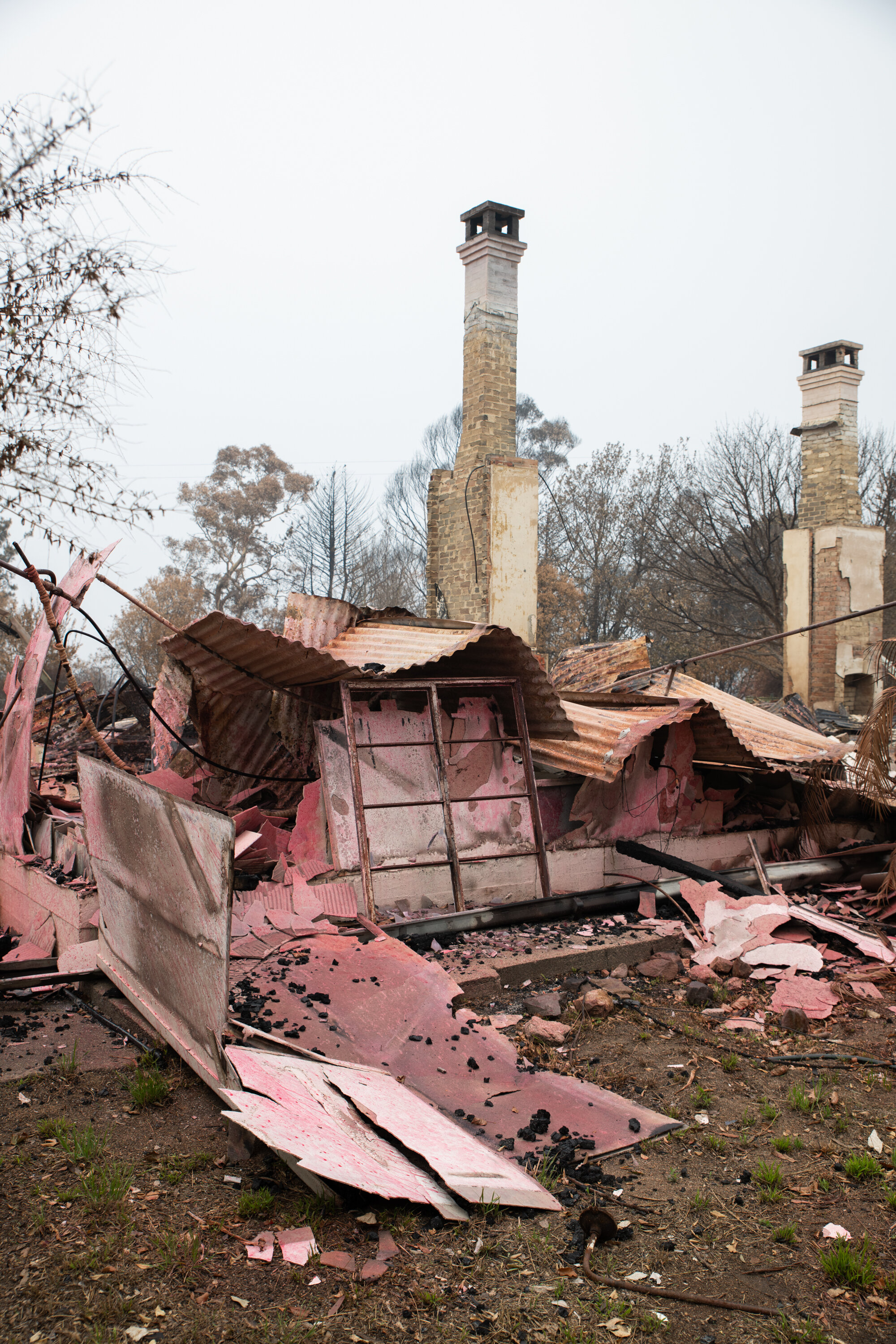Australia On Fire
Me- “How many injured animals have you taken in from the bushfires?”
Wildlife rescue - “There are none”
Me: “What do you mean??”
Wildlife rescue: “They have all been incinerated by the fires. There are no survivors. They are all gone.”
This is the response I received from a volunteer at the Wildlife Rescue South Coast near Bateman’s Bay when I called and asked if she could tell me how things were looking on the ground.
The volunteer spoke with exhausted anger, but underneath it was the sound of a thousand hearts breaking.
The bushfires in Australia have now been burning for two months straight. Unprecedented heatwaves combined with a severe drought have led to what can now unquestionably be categorized as a national (and quite honestly, worldwide) environmental crisis. Approximately 26 million acres have burned during this bushfire season across New South Wales, Victoria, Queensland, South Australia, Western Australia, and Tasmania. In New South Wales alone, 12 million acres have burned. That’s larger than the size of Denmark. It’s estimated that over a billion animals have perished in this disaster. Some 25,000 koalas are believed to have been killed on Kangaroo island alone, after half the island burned a couple weeks ago. Some 4,000 animals have been euthanized. At least 25 people have died. At least 2,000 homes have been burnt to the ground.
And this is only the beginning of bushfire season in Australia.
An endless sea of charred trees
As the weeks have rolled on, we have become increasingly inundated with stories of mass evacuations and fires ravaging isolated towns, large groups of people with no ability to communicate outside fire zones and lacking access to basic necessities such as water, food, and medication. Scorched, dehydrated, starving koalas limping out of desolate expanses, their home having been burnt to the ground and nowhere else to go. The world has watched on in horror as this exquisite, rich, biologically diverse continent has gone up in flames. Australia has become a warzone.
In an effort to better understand this crisis and endeavoring to do at least some small act of good, my friend Ben Woltmann and I offered to deliver some emergency supplies down south on behalf of the Bondi Surf Lifesaving who had orchestrated a massive donation drive for the fire victims.
As Ben and I drove deeper South towards the fire zones, the mood became increasingly more and more somber. Towns that were still standing were covered in a thick layer of smoke and the townspeople looked tired. A fine layer of ash covered everything, and an inescapable smell of burnt forest pervaded the streets– as if the fires wanted to say – there is no escaping me – I am following you.
Entering Conjola
Our first meeting took us to the headquarters of the RFS (Rural Firefighting Service) in Bermagui. Driving through the town was eerie. While the town remained intact, the streets were devoid of people, no laughter, no children playing, no shops open. This beautiful seaside village that usually attracted thousands of visitors during the holiday season was completely empty. Covered in grey smoke and smelling of ash.
The people of Bermagui had been told by authorities that if they decided to stay through the fires they would most certainly die. The predicted fires, if they came as anticipated, would cut off Bermagui from the rest of the coast and the RFS simply would not be able to get to them. Everyone was told to evacuate. One resident said “I feel like a refugee in my own country.”
Miraculously, Bermagui was spared from the fires while most of the surrounding towns got hit hard. But the townspeople had not yet returned home, most of them sheltering in the nearby town of Bega.
When we arrived at the community center which had become the new logistical headquarters for the RFS, we were met with a generous and warm welcome by Commander Lewis Gaha and brigade member Maggie McKinney. Despite the miserable week they had just survived, they were kind and incredibly grateful for the generator we had brought them from Bondi.
Strewn across the tables of what looked like it was once a child’s play room were maps and charts and operational drawings. Firefighters covered in ash sat quietly at a couple of tables. The rest of the center was quiet. The mood was heavy and yet again, everyone seemed exhausted. In spite of it all, the firefighters were happy to see us and couldn’t have been more grateful for the generator from Bondi Surf Club.
After our brief visit to Bermagui we headed to the showground in Cobargo to unload the rest of our supplies. The showground was buzzing with activity. A massive warehouse had been set up supplying the town with free water, food, toiletries, cleaning supplies and a variety of other necessities. About 30 horses who had been forced from their homes were being cared for in open pens, by an equine rescue volunteer. Food was being cooked up on the BBQ and truck after truck was driving up the grounds to drop of supplies. The sky was grey and the showground was a haunting mix of people smiling and greeting old friends, kids running around and playing games, contrast by firefighters who looked like they had just lost World War II and townspeople walking around with bloodshot eyes from smoke and tears.
Two horses rummage for food amongst the ruins in Cobargo
We were led to John Walters, the president of the RFS in Cobargo. It didn’t matter that my small car couldn’t even begin to compete with the giant trucks packed with supplies, when we told him we had brought supplies from Bondi, he was overjoyed. We asked him what else he needed and he replied – “Generators. People need power so badly. There are residents on the outskirts of town, who are in really bad shape.” He told us about Joan, age 82, whose husband had died the day before Christmas. She couldn’t drive, had just lost her husband, and was now stranded in the outskirts of a fire torn town without power (think: no electricity, no water, no toilets, no radio, no phone). John said, “Because of her location, it could be 4 or 5 weeks before she gets power again.”
John Walters | President of RFS Cobargo with Ange Kaine | local volunteer + equine rescuer
John Walters knew all of this because he was going door to door to check on people who he had been told were in especially bad situations. He was checking on them in person. He was ensuring they got what they needed, himself.
This information was relayed to the Bondi Surf club and later that day they sent another large truckload of supplies to Cobargo, including a generator for Joan and a generator which was delivered to a single mother with 3 kids who lost her rental house and was staying in a caravan with no onsite power at a friend’s property.
I was amazed to see a community come together like this. Despite the crippling trauma this town had just been through, people were showing up to help one another in big and small ways, everywhere you looked, all day long.
The warehouse filled with supplies was a massive undertaking with table after table filled to the brim with life’s necessities. Tables were organized by item and about 20 volunteers buzzed around at any given time, pulling more supplies from the back and setting them out on the tables. A pile of shopping bags and boxes sat at the front of the building for people to shop with. Everyone knew each-other by name. The townspeople knew exactly what was happening for one another and were checking in on each-other constantly. There was a spirit of camaraderie and generosity, even in the face of the catastrophe they had just braved. Some of the volunteers had lost their houses, their animals, their friends, their livelihood, and yet, there they were, stacking goods in the warehouse to help their neighbors.
In the afternoon, a drive through the town of Cobargo and farmlands surrounding it, left us with gnawing pits in our stomach. It felt like a warzone. It was a scene strewn with cars that had been gutted by fire, now mere metal piles left by the side of the road, hungry farm animals roaming slowly along charred hills, incinerated houses with a life’s worth of memories scattered amongst the leaves. A powerline still smoking hung broken off its pole, dangling ominously. The ground was warm to the touch as we walked through now empty farmlands and smoke billowed from a tree that had just fallen. The air hung low and heavy with smoke. It was hard to breathe and to think straight. It was not a place that felt hospitable for life.
Over a billion animals are estimated to have perished in the recent Australia bushfires.
And the animals which have survived are now suffering from starvation, dehydration, burns and smoke inhalation.
Home in Quaama (near Cobargo) destroyed by fires
We returned to the showground understanding more viscerally what the Cobargo residents had just endured. They hadn’t had survived a fire, they had survived a war. A war against an enemy that has no morals or discernment, it’s hunger insatiable, unpredictable, and at times, unstoppable. These fires do not fight fair.
Currently there are over one hundred fires eating their way through Australia’s precious, once biologically diverse and stunning landscape. Millions of acres of land continue to be destroyed. Over a billion animals dead. Many of them rare and endangered, existing nowhere else in the world. 150 year old homes have been burnt to the ground. Lives have been shattered into what at times, looks like an irrevocable mess. Most would agree, it’s all, almost, too much to bear. The loss is so massive and deep.
The firefighter brigades have been fighting without respite for months. There simply isn’t enough water you can throw from airplanes on fires this size. While recent rains in New South Wales have served to aid in combatting the flames, it isn’t enough to stop them, and it won’t be enough to rebuild what has been lost. This crisis has served as a reckoning for Australia and perhaps the rest of the world. It foretells of a future that is bound to be filled with more horrific natural disasters as we continue to live in ways that ignore the natural rhythms of the planet. More than ever before the people of Australia are beseeching their government to wake up and smell the burnt forest.
Donations: If you feel compelled to make a donation to help those recovering from the Australian Bushfires, here are a couple organizations doing incredible work on the ground here. Your donations are invaluable and while they may feel anonymous, they are helping these communities get back on their feet in the face of this crisis.
BUSHFIRE RELIEF ORGANIZATIONS:
Donate directly to the Cobargo community: https://www.gofundme.com/f/cobargo-community-bushfire-recovery-fund
Rural Firefighter Service: https://www.rfs.nsw.gov.au/volunteer/support-your-local-brigade
Animal Rescue (largest in Oz): https://www.wires.org.au/
Port Macquarie Koala Hospital: https://www.koalahospital.org.au/
Wild 2 Free (Kangaroo rescue): https://wild2free.org.au/
Australian Red Cross: https://fundraise.redcross.org.au/drr
Salvation Army: https://salvationarmy.com.au
World Wildlife Fund (fundraising for Koalas): https://donate.wwf.org.au/donate/koala-crisis/koala-crisis
Majors Creek Wombat Refuge: https://www.wombatrefuge.com.au/
Special thanks: I would like to extend a special thank-you to my friend Ben Woltmann who served as my co-pilot on this expedition, as well as my advisor for this article. Thank-you for your notes, your commitment, kindness and incredible wit which kept us laughing even when all we wanted to do was cry.




